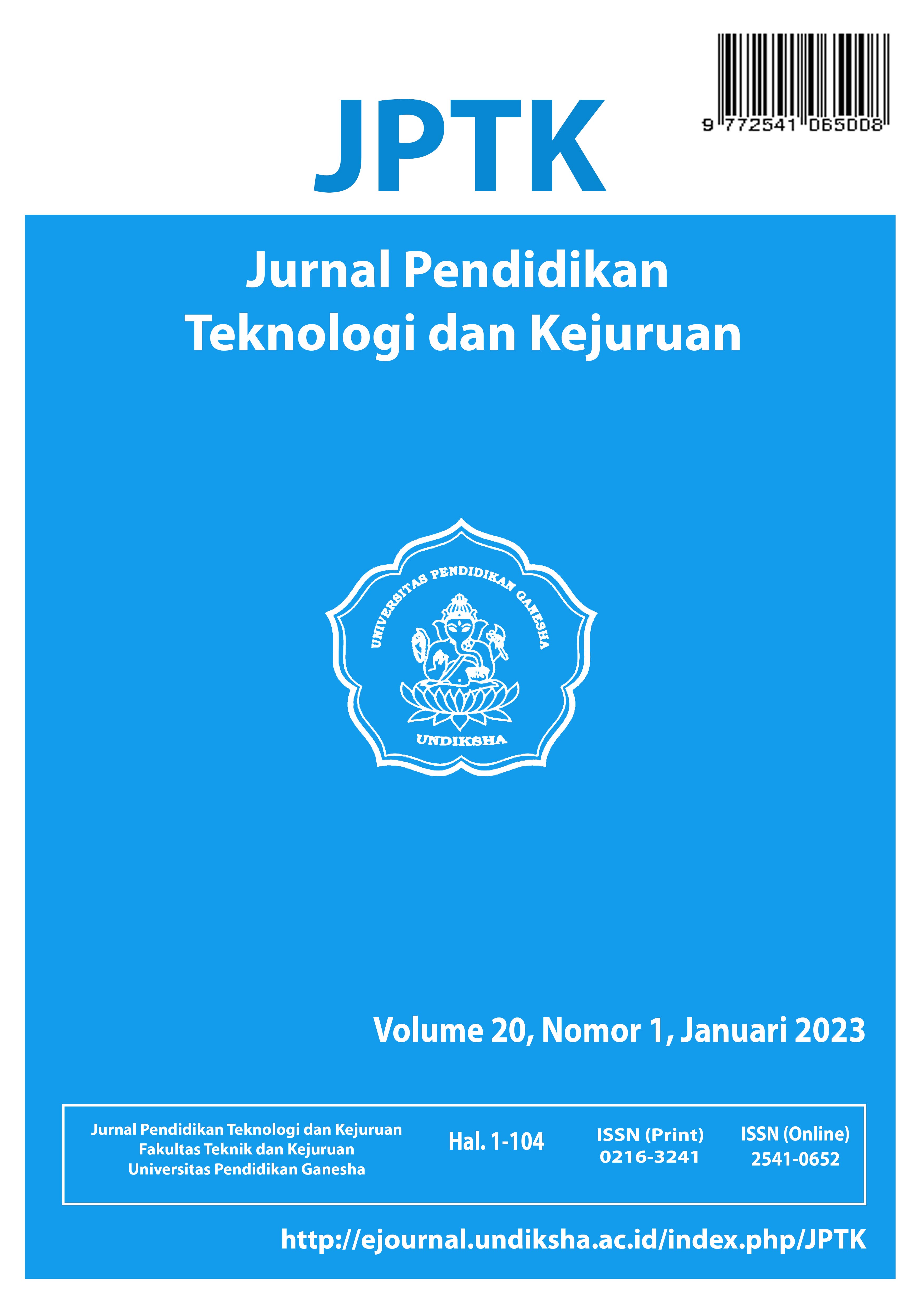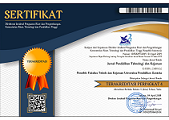PENGEMBANGAN MULTIMEDIA PEMBELAJARAN PADA ELEMEN PENGOLAHAN MAKANAN DAN MINUMAN SUB ELEMEN HIDANGAM SOUP
DOI:
https://doi.org/10.23887/jptkundiksha.v20i1.52749Abstract
This study aimed at finding the process of developing learning multimedia on the food and beverage product course particularly in the soup menu as the sub-topic. The validity of developed product depended on the expert judgements; content expert judgment, media expert judgement, and design expert judgement. The research model used in this study was ADDIE model in which the subjects of this study were 2 content expert judges, 2 design expert judges, and 2 media expert judges. There were also 40 students of twelfth grade involved in this study. The data were gained by conducting observation, interview, and questionnaire. The process of developing learning multimedia on the food and beverage product course particularly in the soup menu as the sub-topic was relevant and appropriate to be used for twelfth grade students in vocational high school. The use of developed learning multimedia assisted students in understanding the learning material due to the complement of concrete examples in the form of picture and video. It also created students’ interactions during the learning process where the students were able to operate and response the questions given in this interactive learning multimedia. The developed product has very good quality viewed from the results of content validity, design validity, and media validity. The similar result also found from the individual validity and small group validity.
Downloads
Published
Issue
Section
License
Authors who publish with the JPTK agree to the following terms:- Authors retain copyright and grant the journal the right of first publication with the work simultaneously licensed under a Creative Commons Attribution License (CC BY-SA 4.0) that allows others to share the work with an acknowledgment of the work's authorship and initial publication in this journal
- Authors are able to enter into separate, additional contractual arrangements for the non-exclusive distribution of the journal's published version of the work (e.g., post it to an institutional repository or publish it in a book), with an acknowledgment of its initial publication in this journal.
- Authors are permitted and encouraged to post their work online (e.g., in institutional repositories or on their website) prior to and during the submission process, as it can lead to productive exchanges, as well as earlier and greater citation of published work. (See The Effect of Open Access)












